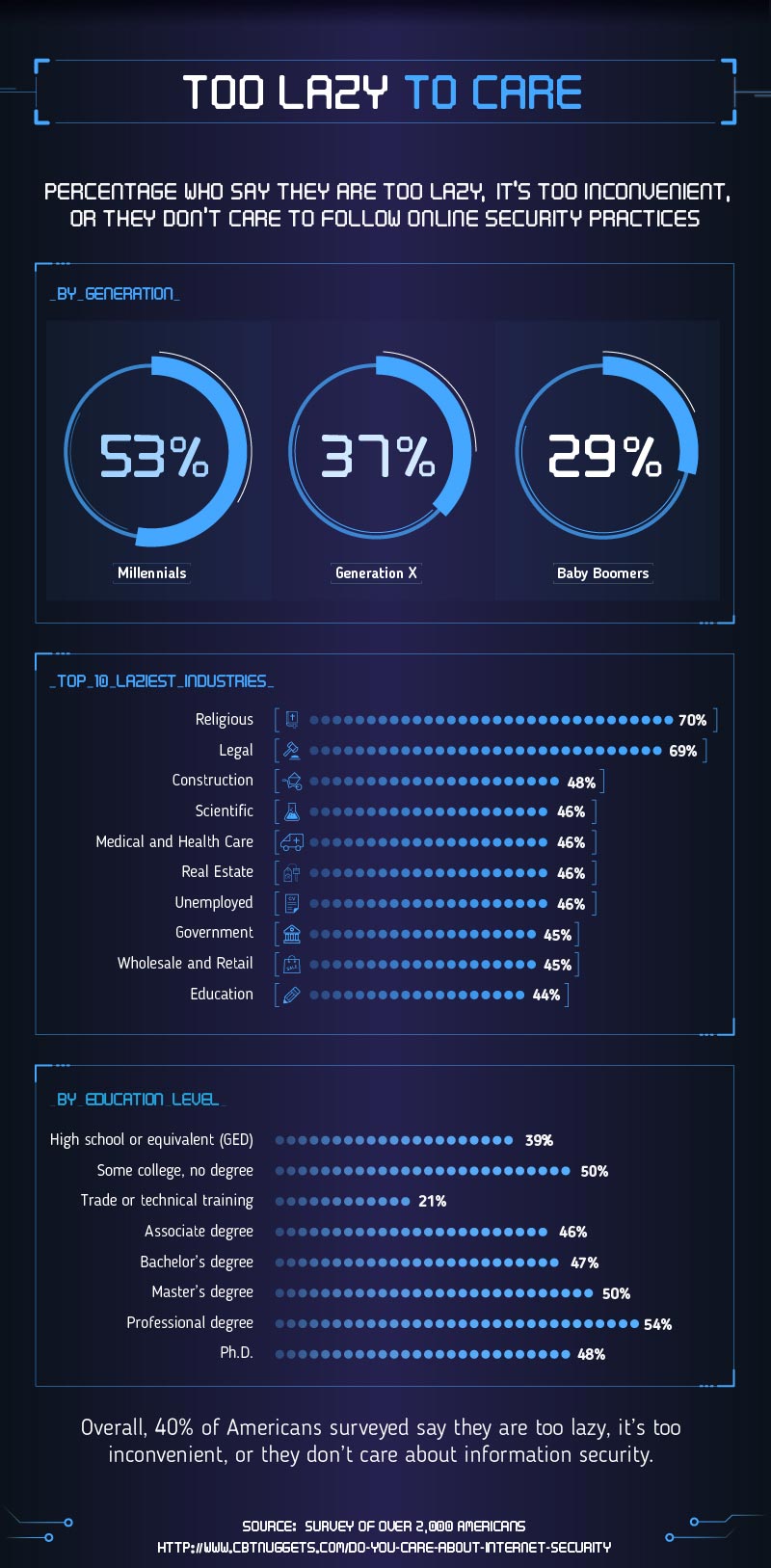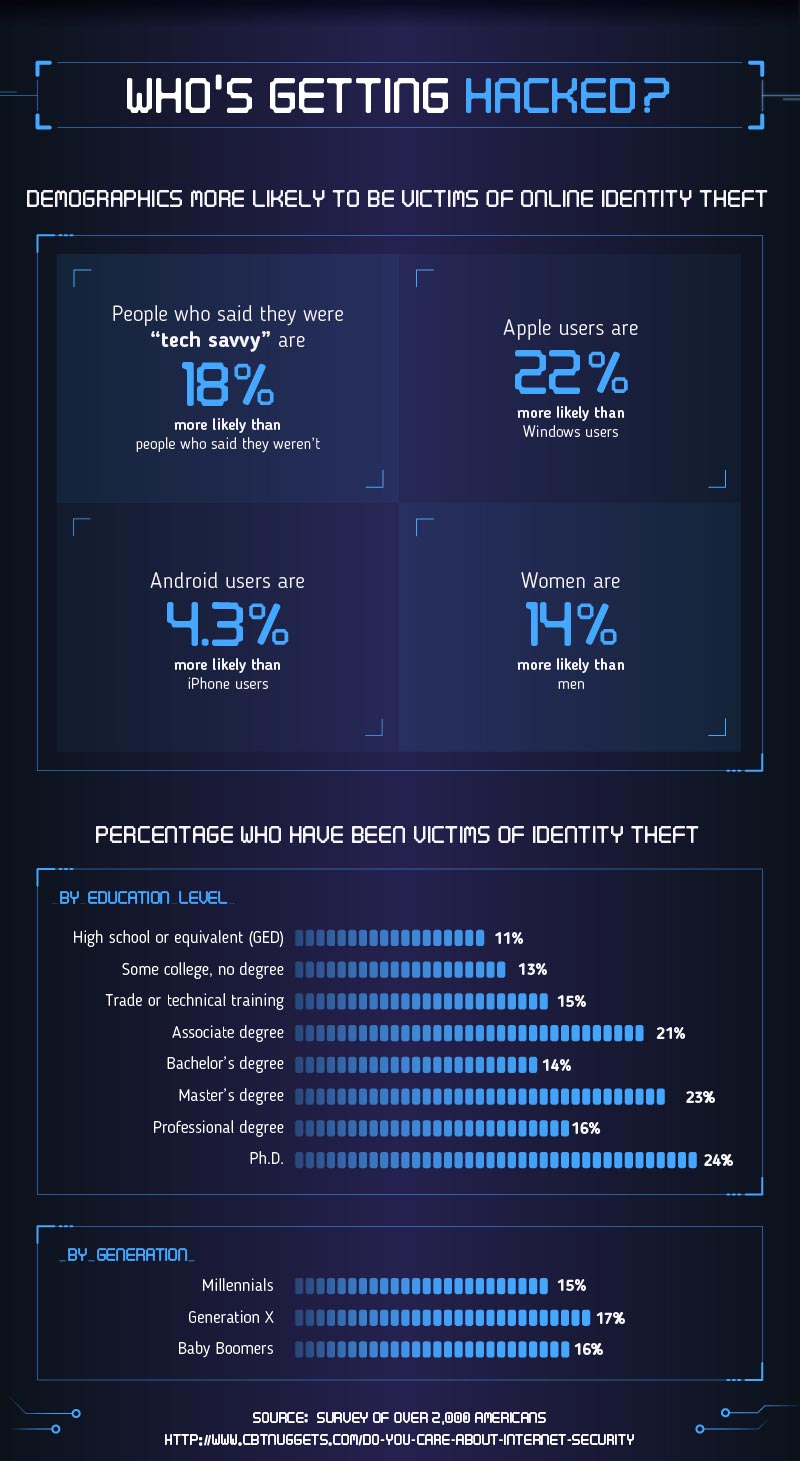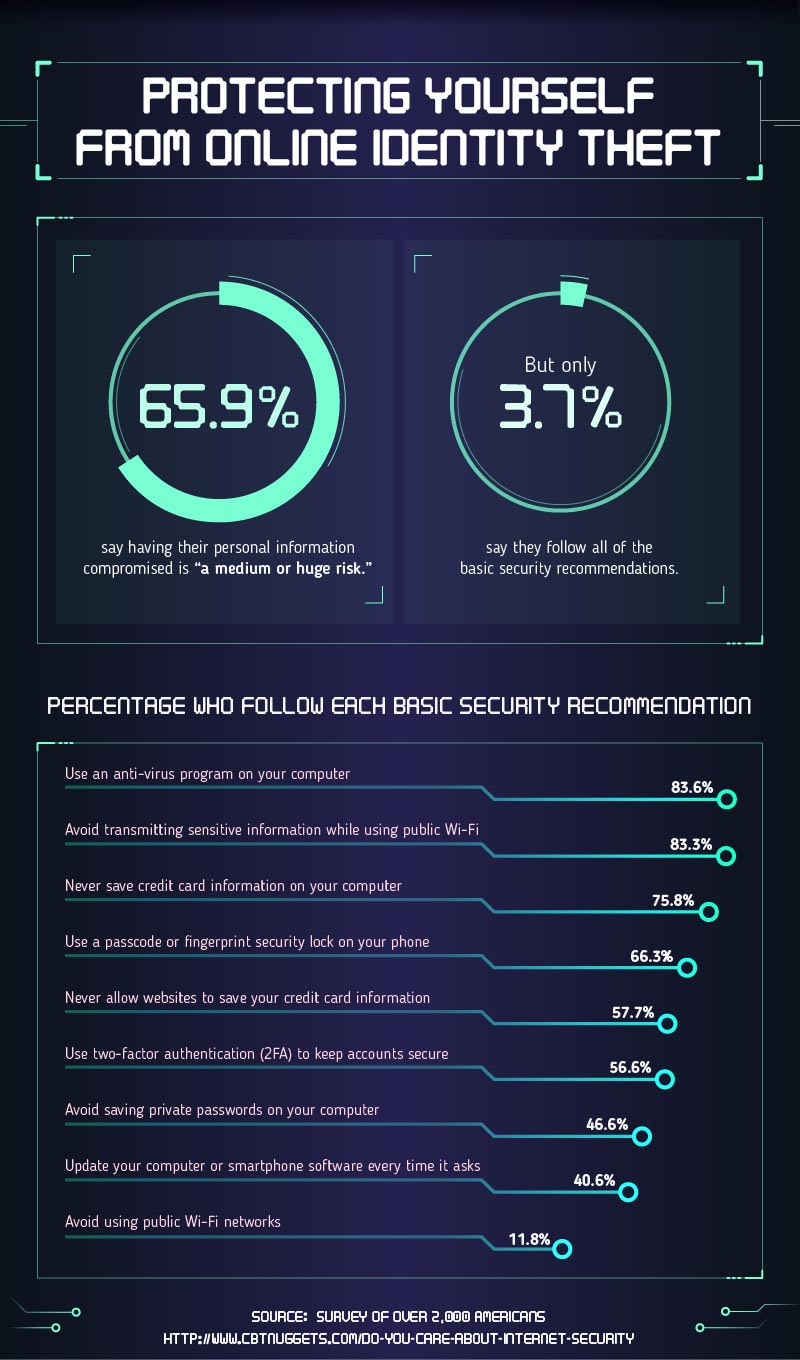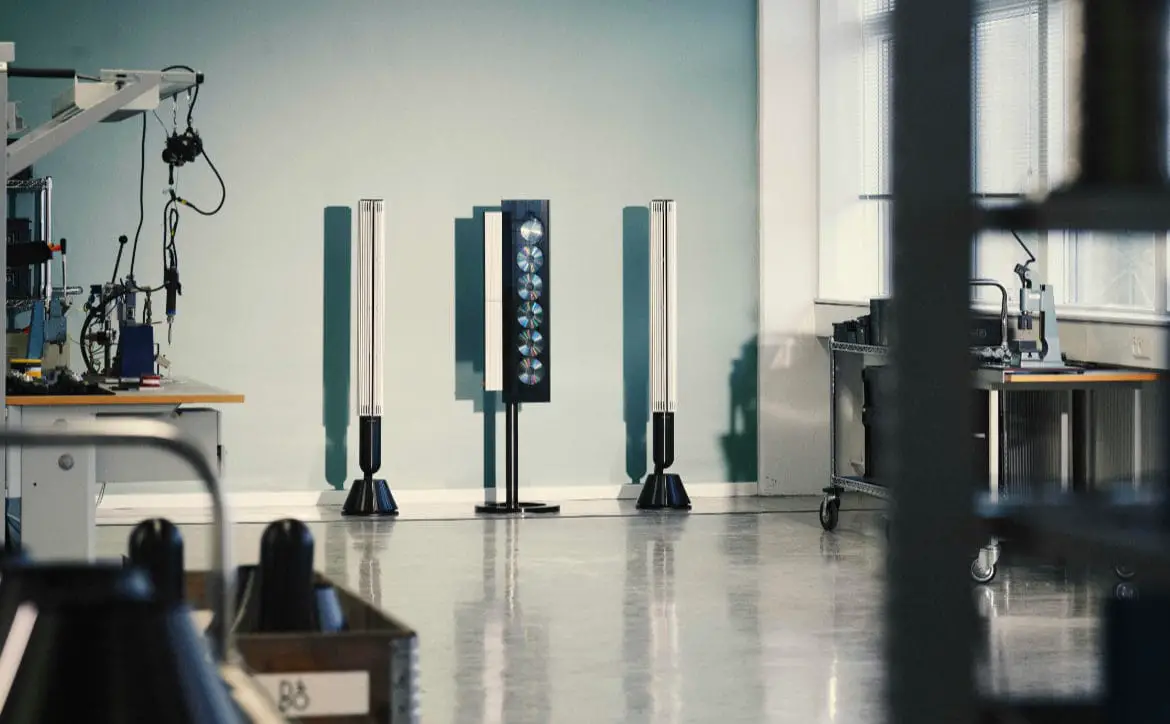You would think that those who think of themselves as being “tech-savvy” or have a higher education are safer online from potential identity theft than others. According to a survey of over 2,000 Americans, CBT Nuggets found that this wasn’t the case. In fact, those who are “tech-savvy” or have Ph.D.s were actually more likely to be victims of online identity theft.
The study questioned survey respondents after testing their knowledge about online information security. They found some pretty interesting things when it came to internet security as it pertains to logging in, passwords, social security numbers, education, and where respondents lived. We’ve harped on the importance of unique passwords. two-factor authentication, and other security here at Techaeris over the years, but it seems people still aren’t getting the message according to the survey.
So just who is “slacking” when it comes to protecting themselves from hacking? Check out some of the findings below:
- people who claim to be “tech-savvy” are 18% more likely to be victims of online identity theft than those who aren’t
- women are 14% more likely to be victims of online identity theft
- Apple users are 22% more likely than Windows users to be victims, yet Android users are 4.3% more likely than iPhone users
- only 11% of those who have a high school or equivalent education have been victims of identity theft as opposed to 23% of those with a Master’s degree and 24% of those with Ph.D.s
- “Tech-savvy” people? Only 6.2% use more unique passwords than people who said they weren’t, while women used 2.9% more passwords than men
- Windows users used 12.6% more passwords than Apple users, while Android users used 10.8% more than iPhone users
- those with a Ph.D. only used unique passwords 64% of the time while those with a high school or equivalent or some college used them 67 to 70% of the time
- even though 66% of respondents said having information comprised was a “medium” or “huge” risk, fewer than 4% followed all the basic security recommendations
- 40% of Americans surveyed admitted they’re too lazy, it’s too inconvenient, or they just don’t care about information security

Of course, there are a number of reasons why some people are more likely than others. Those who are “tech-savvy” for example could be online more than those who aren’t which would increase the risk. Those with a high school diploma may be less likely to be targeted than someone with a Ph.D. simply for the type of information someone might be after, or how long they’ve been online.

Considering the rise of data breaches as a result of hacking and phishing lately, some of these numbers are pretty troubling. There are some easy ways to protect yourself online, and this chart from the survey shows some of these ways along with the percentage of respondents who follow each recommendation.

What do you think about the results of CBT Nuggets’ survey? Do you use different passwords and take online security seriously? Hit up the link below for the full findings, and let us know in the comments below or on Google+, Twitter, or Facebook.
[button link=”https://blog.cbtnuggets.com/2017/03/how-do-your-online-security-habits-stack-up/” icon=”fa-external-link” side=”left” target=”blank” color=”285b5e” textcolor=”ffffff”]Source: CBT Nuggets[/button]









